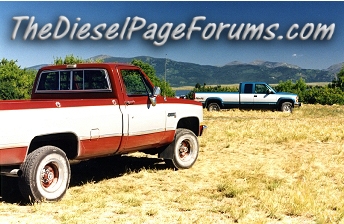
this is a link to "Everything you ever wanted to know about oil v1.2". cant say i understand all of it (or care to) but some of you guys may find it interesting and informative.
" Multi viscosity oils are one of the great improvements in oils, but they should be chosen wisely. Always use a multi grade with the narrowest span of viscosity that is appropriate for the temperatures you are going to encounter. In the winter base your decision on the lowest temperature you will encounter, in the summer, the highest temperature you expect. The polymers can shear and burn forming deposits that can cause ring sticking and other problems. 10W-40 and 5W-30 require a lot of polymers (synthetics excluded) to achieve that range. This has caused problems in diesel engines, but fewer polymers are better for all engines. The wide viscosity range oils, in general, are more prone to viscosity and thermal breakdown due to the high polymer content. It is the oil that lubricates, not the additives. Oils that can do their job with the fewest additives are the best."
http://www.repairfaq.org/filipg/AUTO...l#OILFACTS_004
this forum sure has lively debates to keep things interesting...keep it up.
\'03 GMC DMax/Ally 4x4 Crew, Jet black, Factory dual alts, ARE Z-series cap, Jotto desk, Pentium Powered, Lots on the way...933 miles 1.5 weeks old! I\'ll give GM one last try...<p>\'01 2500 DMax 4x4 xcab, JET BLACK! Chipped, straight piped, 265 Wrangler MTR, stainless nerfs, Lund deflectors, Polished aluminum American Racing rims/stainless caps and lugs, Bedslide, Line-X, Powervision, Advanced Cover, 3000 watt power inverter, 4 corner strobe kit, Jotto Desk computer stand with 1gig Dell Inspiron laptop/docking station with CDRW/DVD and Voice activated GPS and Color printer. Lots still to go. - Gm is buying this truck back...Lawyer is now fighting with GM...new chevy front end is hideous!<p>\'99 Powerstroke-103k abusive miles with no problems. Truck is sold!<p>1990 Carrera 2 Cab black of course, Koni/Eibach adjustable suspension, Zimmerman vented rotors with racing pads, \"cup\" style airbox mod, harness bar with video camera mount. very fun track/street car.<p>\'01 Volvo XC-wifes\' truck-not bad for a go-go-grocery getter.<p>PULL MORE, GO FASTER!












